2019-01
On January 18, the Future Young Leaders Forum hosted by the Schwarzman College of Tsinghua University and supported by the Centre for the Fourth Industrial Revolution of the World Economic Forum and THTI Holdings was held at Dalio Auditorium of Schwarzman College of Tsinghua University.
Under the theme of “China’s Practices in the Fourth Industrial Revolution”, the forum adopted a multiangle approach to the impact of the fourth industrial revolution on enterprises, governments, societies and individuals and China’s roles and responsibilities in future global science and technology governance. Nearly 300 scholars and students attended this forum.
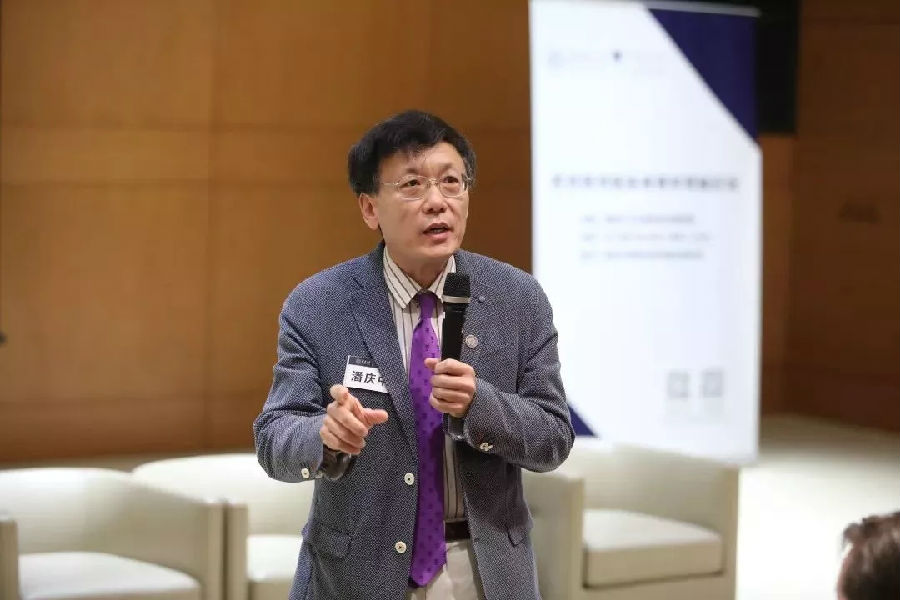
▲ Pan Qingzhong moderating the forum
The forum was moderated by Pan Qingzhong, executive vice president of Schwarzman College of Tsinghua University. In his welcoming speech, Pan Qingzhong briefed on the development history of the college. As one of the key measures taken by Tsinghua University for new 100-year development, the establishment of Schwarzman College has gained care and support from global leaders from the very start. The college welcomes excellent students with academic excellence, vision, a sense of responsibility and mission and leadership potentials.
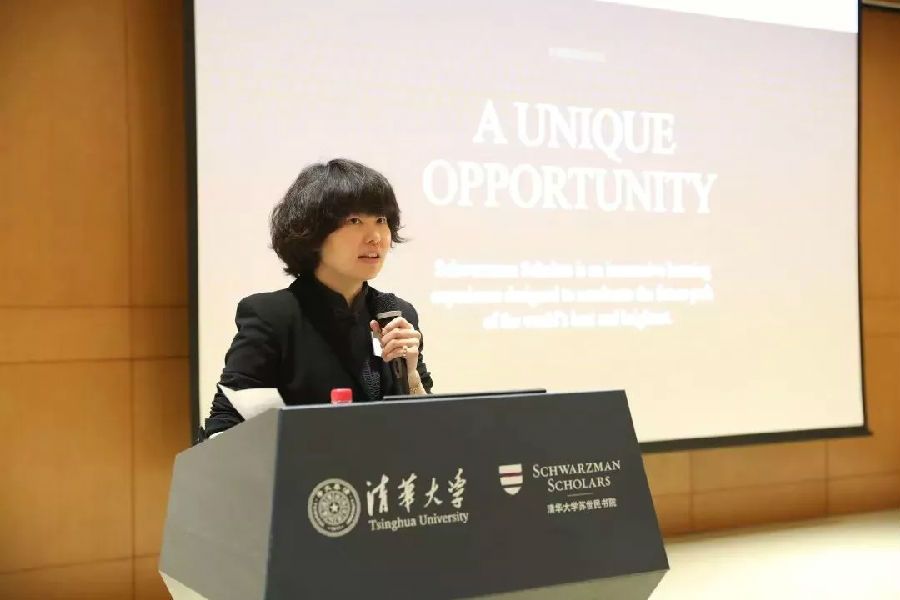
▲ Liang Bing introducing Schwarzman College of Tsinghua University
Liang Bing, an official from the Admission Department of Schwarzman College of Tsinghua University, provided a comprehensive introduction of the basic situation of the college from such perspective as diversity of students, faculty with international academic reputation, industrial adviser system and experiential teaching. The application system of 2020 class of Schwarzman Scholars in China is already open to applications from outstanding students.
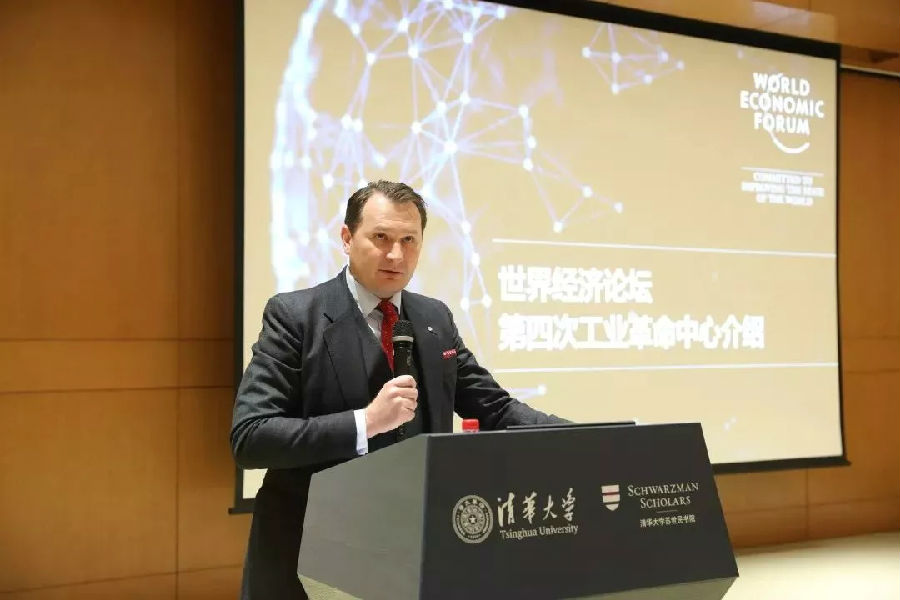
▲ Danil Kerimi introduces the Centre for the Fourth Industrial Revolution of World Economic Forum
Danil Kerimi, head of the Centre for the Fourth Industrial Revolution China of World Economic Forum, appreciated the presence of guests and audience, and introduced the Centre for the Fourth Industrial Revolution of World Economic Forum.

▲ Pan Qingzhong (left), Liu Yan (second from left), Tong Zhilei (second from right) and Ma Teng, moderator, at the first panel
The forum is divided into three panels. Under the theme of “China’s Practices I: Education Innovation”, the first panel was moderated by Ma Teng, deputy editor-in-chief of Tencent Online.
As to how to understand innovation, Liu Yan, deputy director of New Business Research Center of China Minsheng Investment Group, argues that innovation provides technological solutions to existing problems, while affecting daily life. The ultimate purpose of technology innovation is to create an open and fair society and bring a more harmonious and happy life for future generations.
Talking about the education difference between China and Western countries, Tong Zhilei, chairman and CEO of Chinese All Digital Publishing Group and Young Global Leader of World Economic Forum, shared his experience. He said that China’s standardized textbook and teaching model ensures stable quality of education, while Western open teaching encourages personalized development and requires high-standard teachers.
Citing Schwarzman College as an example, Pan Qingzhong analyzed how public schools pursue education innovation. Tsinghua University’s New 100-Year Plan calls for greater focus on internationalization, humanity and innovation. Against this background, Schwarzman College has been exporting the innovation of interactive teaching, designing discussion programs by Chinese and Western professors, opening China Society Practice, an experiential course design to help student gain an in-depth understanding of China, and adopting an interview-centered admission process.
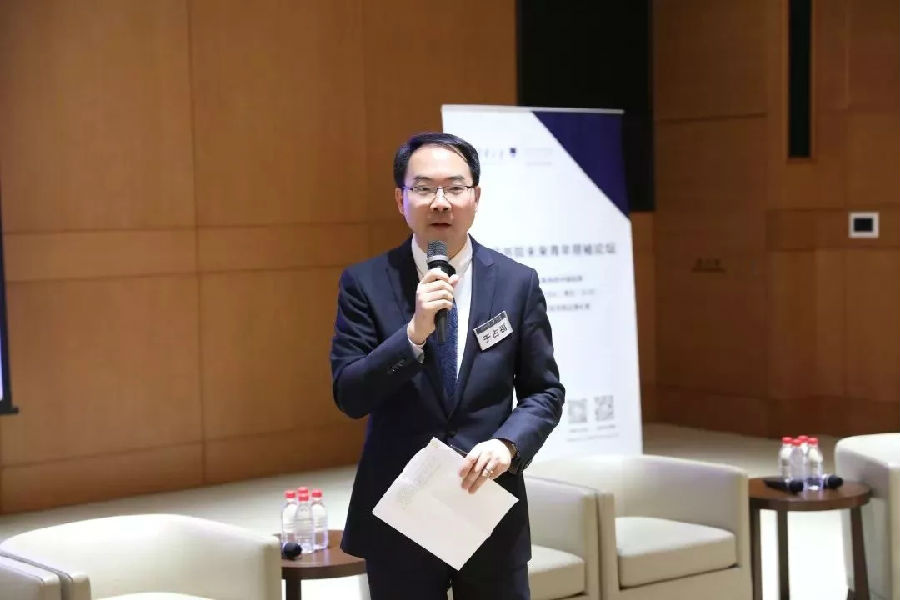
▲ Yu Zhanfu, moderator of the second panel, introduces guests
Under the theme of “China’s Practices II: Sky and Earth of Smart City”, the second panel was moderated by Yu Zhanfu, a partner and vice president for Greater China at Roland Berger.
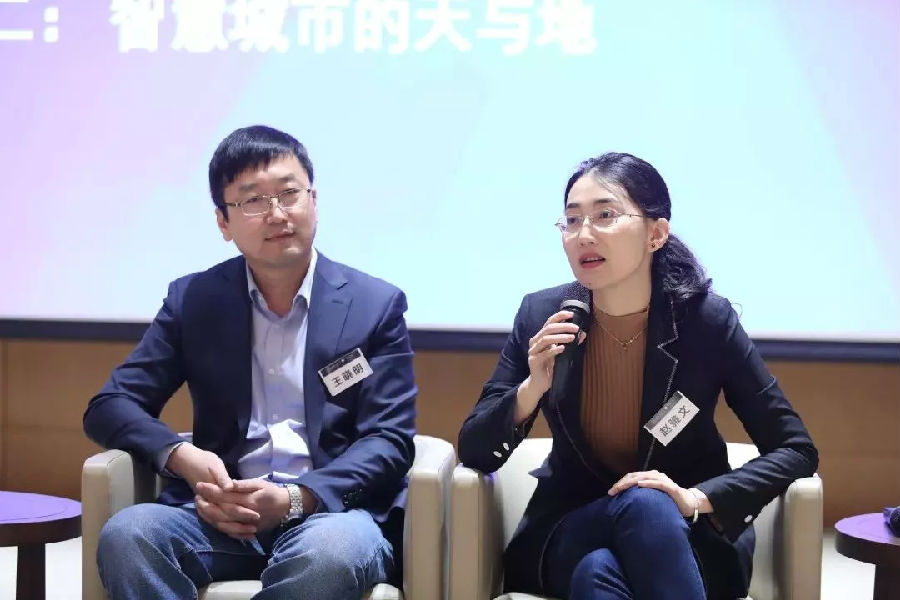
▲ Wang Xiaoming (left) and Zhao Yawen share their views
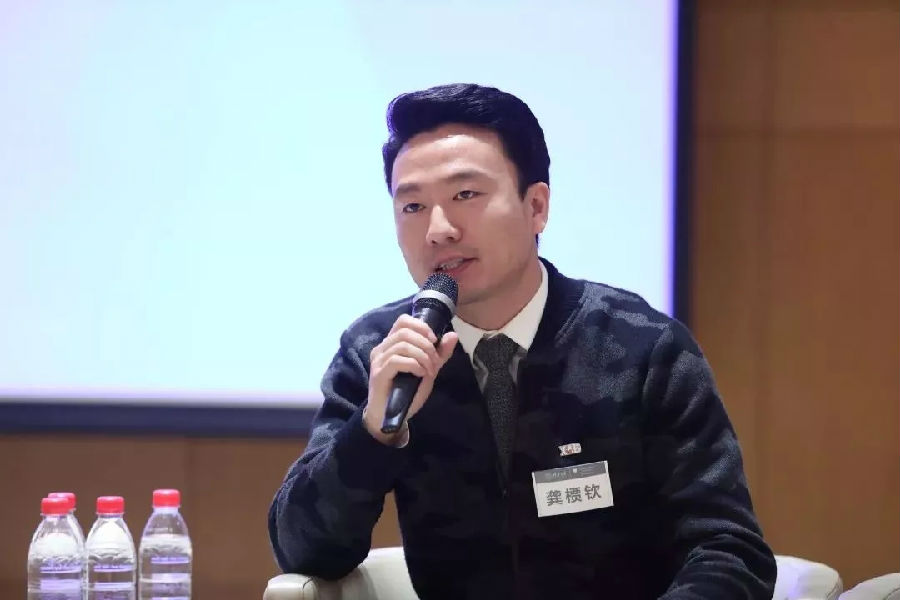
▲ Gong Jiaqiin shares application of drone in smart agriculture
When asked about his prospect for smart city, Wang Xiaoming, a researcher at the Institutes of Science and Development, Chinese Academy of Sciences, argued that future smart city is an integration of digital and traditional businesses and a city combining knowledge with information. He added that its ultimate goal is to serve the better life. Zhao Yawen, vice president of CRC Smart Energy Co., Ltd., said that the high-efficiency, low-carbon and environment-friendly use of energy will play an essential role in the planning of future smart city. She added that with the advent of the era of energy transformation, future energy utilization aims to reduce energy cost and enhance comprehensive energy efficiency for societies. Gong Jiaqin, co-founder of XAG Technology, shared the application of drones in smart agriculture, the relationship between smart agriculture and smart city as well as what role smart agriculture will play in the world economy.
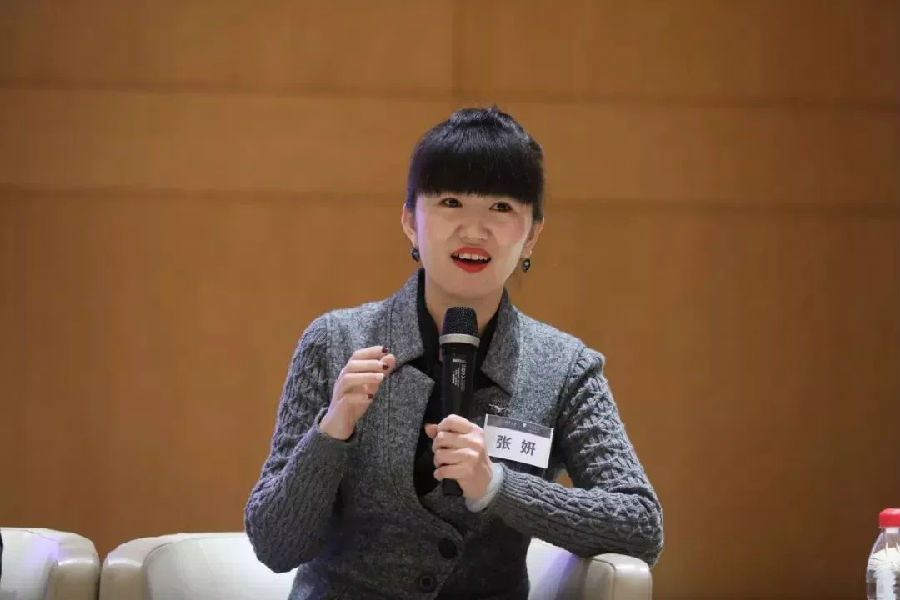
▲ Zhang Yan delivering a speech
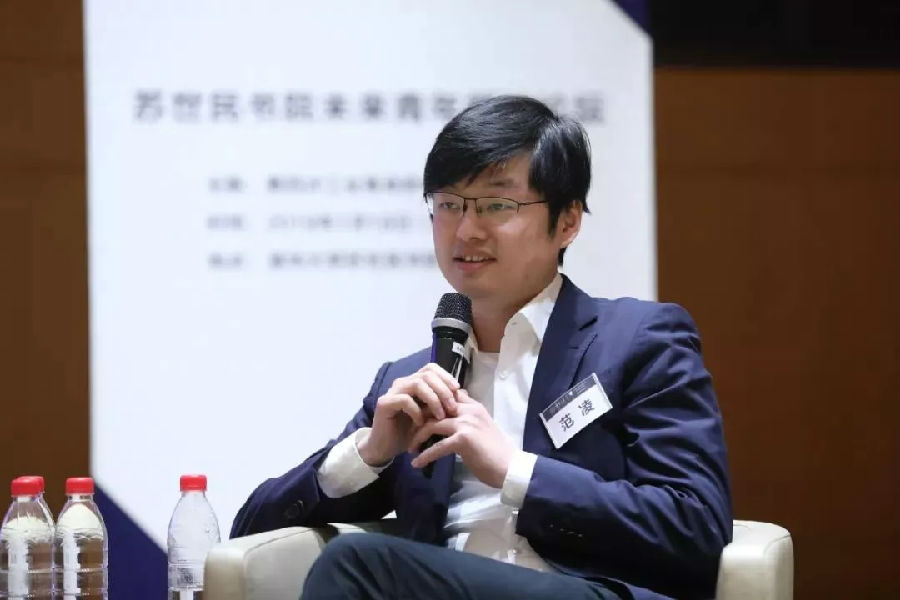
▲ Fan Ling delivering a speech
Zhang Yan, vice president of Ehang Intelligent Technology Co., Ltd. (Guangzhou), described drone as an important direction for the development of smart city, saying that drone, which provides innovative services in logistics, distribution and transportation, is committed to reducing the cost of labor and time and addressing traffic congestion and other livelihood issues. Fan Ling, founder and CEO of Tezign and Young Global Leader of World Economic Forum, said that smart city is meant to practice the vision of “city makes life better”. He added that technology-driven future urban development needs to serve people.
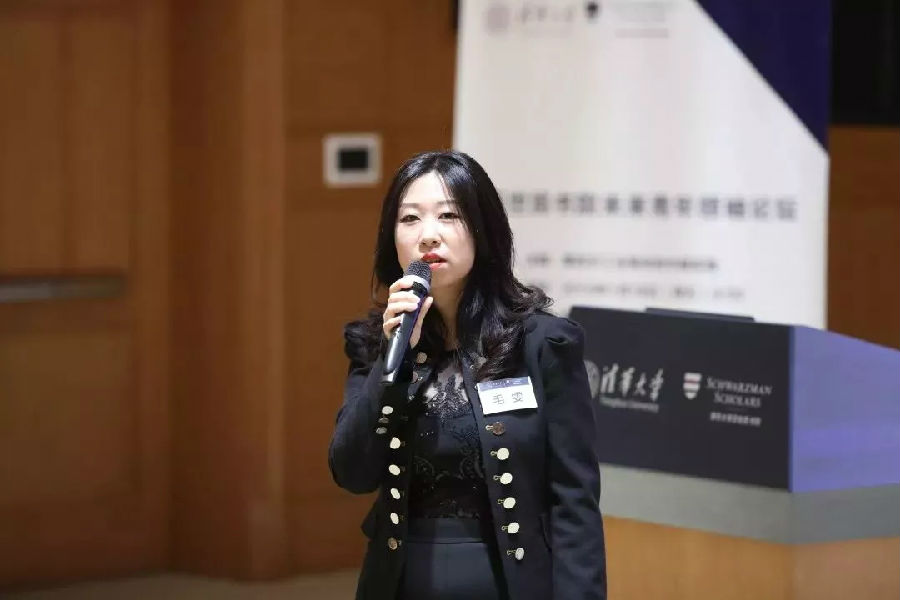
▲ Mao Wen moderating the third panel
Under the theme “China’s Practices III: Artificial Intelligence and Precision Medicine”, the third panel was moderated by Mao Wen, director of precision medicine at the Centre for the Fourth Industrial Revolution of World Economic Forum.
Talking about the concept of precision medicine, Zheng Hanqiu, researcher at the School of Medicine, Tsinghua University, said that precision medicine means formulating a treatment scheme based on the specific conditions of individuals.
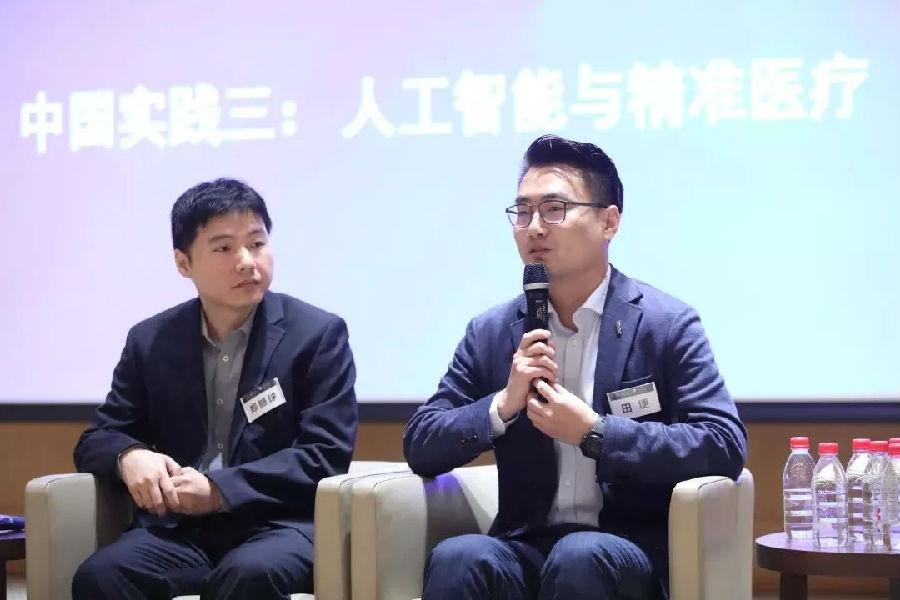
▲Zheng Hanqiu (left) and Tian Geng deliver speeches
Tian Geng, chairman of GENEIS, pointed out that the development of gene pool has scored many important achievements, e.g. cancer matching and genetic screening. He added that the cooperation between business investment and medical research, through data from clinical cases and gene sequencing, can help patients quickly find the most suitable treatment. In the meantime, Tian Geng warned about a rational approach to gene test.
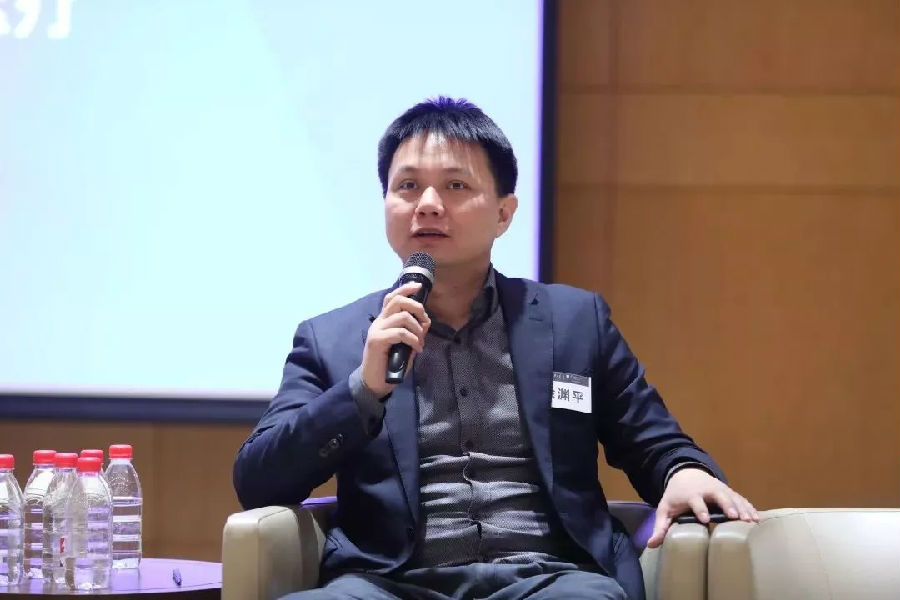
▲Xu Yuanping delivers a speech
Xu Yuanping, investment director of Fortune Capital, said that domestic gene test technology has developed significantly, but its interpretation is more complex and expensive. The combination of AT and medicine can help doctors quickly interpret related data and define the treatment scheme. He argued that ultimately, technology is meant to serve people, and that precision medicine will become a common medical practice.
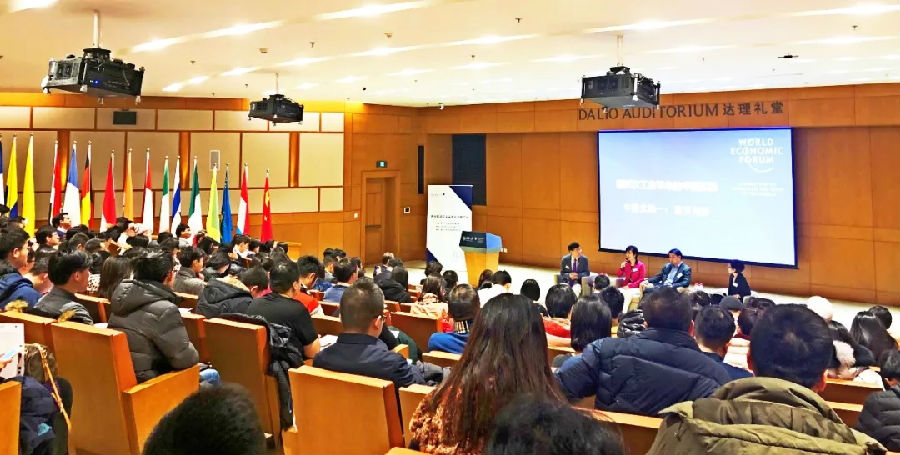
▲ Scene of activity
(Source: Schwarzman College, Tsinghua University)
